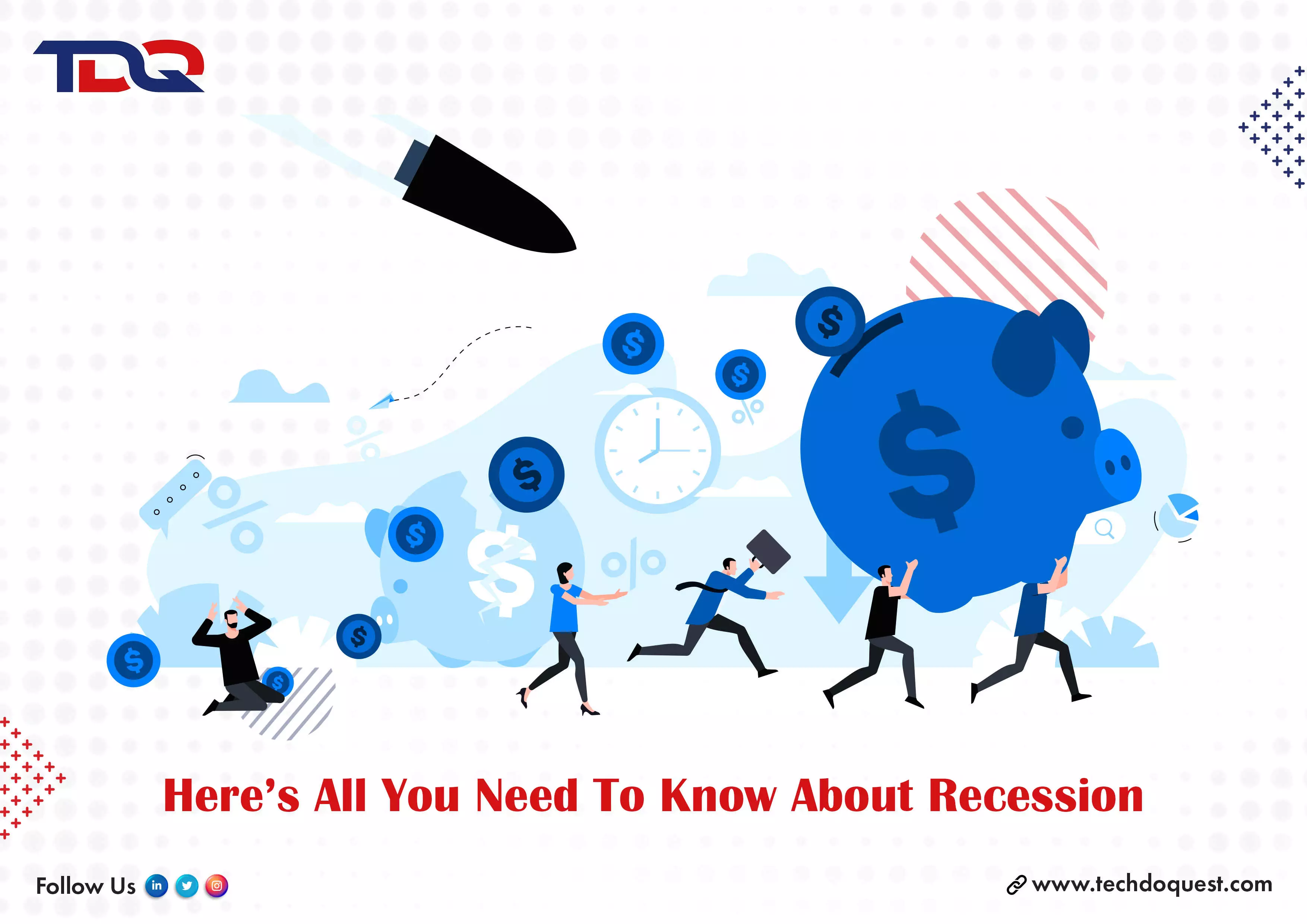Recession Explained: All you need to know about it
By Newsmeter Network
Amidst lakhs of graduates gearing up to enter the workforce, recession fears lead giant tech companies including Microsoft to lay off employees while others like Meta, Google, Apple, Amazon have initiated a hiring freeze. Additionally, Indian startups contribute to 13% of the 2022 layoff reports. This news has led to a global discussion among media, business tycoons, professionals, job seekers along with employees curious about the "what, where, when and How of Recession."
Recession is a temporary phase of an economy during which the trade and manufacturing activity declines, typically indicated by a reduction in GDP over two consecutive quarters. Recession is caused by varied factors – most common ones being excessive spending, recurrent natural disasters, inflation etc.
Common causes of Recession:
A. Unexpected Economic Shocks: An unexpected event that creates a serious financial loss is one of the causes. One of the recent examples was the shutting
down of economies due to the global Covid Outbreak.
B. Technological Advancements: Swift technological advancements lead to shifts in employment pattern, some advancements create job opportunities. For instance: Remote working patterns during the pandemic worked well for the world. But, changes such as automation tend to put people out of jobs due to Artificial Intelligence (AI) and Machine Learning (ML).
C. Real Estate Bubble: The phenomena of bubble burst, usually containing false hikes in property prices, creates an irrational behavior. As a result, panicked owners start selling their property at a lesser price than the original value.
D. Debt Distress: Excessive debts make people financially burned, often leading to them defaulting on huge payments which eventually causes bankruptcies. Housing loans have been one of the causes of the Great Recession in the past.
Low Demand = Low Purchasing Power
Recession being a by-product of inflation, starts with decrease in the spending power of consumers, which lowers the demand curve. Reduced demands breaks the small and large business cycle, resulting in increased sales, reduced quantity/quality of products, employee layoffs, salary cuts, increased debts, blocked developments and so on as a result of low sales and bad debts. The repercussions can be best described as a "Butterfly Effect" and impacts the global economy like a vicious cycle in ways mentioned below:Impact of Recession:
1.Employment Issues: During recession employees are laid off or suffer pay cuts and poor benefits silently with the fear of losing their jobs. Job seekers struggle with job hunting.
2. Reduced Purchase Power: Increased inflation declines the spending capacity of people, followed by reduced purchasing power which impacts the economy (because there's less money in the market) as a whole.
3. Bankruptcy: A negative economic growth due to decreased sales and profits along with increased bad debts lead to bankruptcy of businesses, government and economy in all.
4. Increased Debts: Loss of sales and profits along with bad debts leads small, big businesses and among government bodies. Recurring and long term debts lead to depression
5. Assets Lose Value: As an after effect of reducing investments and declined purchasing power, people liquify their assets at lower prices to pay off debts while a handful of individuals and institutions advance by making purchases at lower values.
6. Drop in Interest Rates: Varied dynamic elements like declined investments, loan borrowing, spending habits reduce loan applications, followed by which banks reduce interest rates to encourage loans.
7. Stagnant Development: Recession, over a period of time, impacts the entire economy, declined income and increased debts being primary obstacles, growth and development is ultimately hit or held until the market is again stable. The Great Recession between 2007 and 2009 was a result of the bursting of the property bubble. Experts predict that this Recession would arrive in the third quarter of the Financial Year 2022-2023. Some of the causes for upcoming recession include COVID- 19 outbreak, quick technological advancements, increased inflation etc.
Here's how you can be Recession-proof:
Although recession has a great impact on the economy, we can make ourselves recession proof by preparing at personal and professional levels in the following ways:
At a Personal Level:
1. Critical Thinking and Decision Making
2. Interpersonal Communication & Resilience
3. Creativity Ideation & Innovation
4. Utilizing Resources Frugally
5. Emotional Intelligence
At a Professional Level:
1. Gain Value in your organization by adding to the growth of the organization.
2. Observe market trends and upgrade yourself with the required skills on a regular basis.
3. Showcase your professional experience and skill set by optimizing your LinkedIn Account.
4. Create a side hustle to manage a stable income during the global financial crisis.
5. Make savings as a mandatory part of your life and invest in stable markets.
(This article is written by Alisha Fernandes from TechDoQuest (TDQ), in partnership with NewsMeter. Views expressed by TDQ do not reflect that of our media organization).